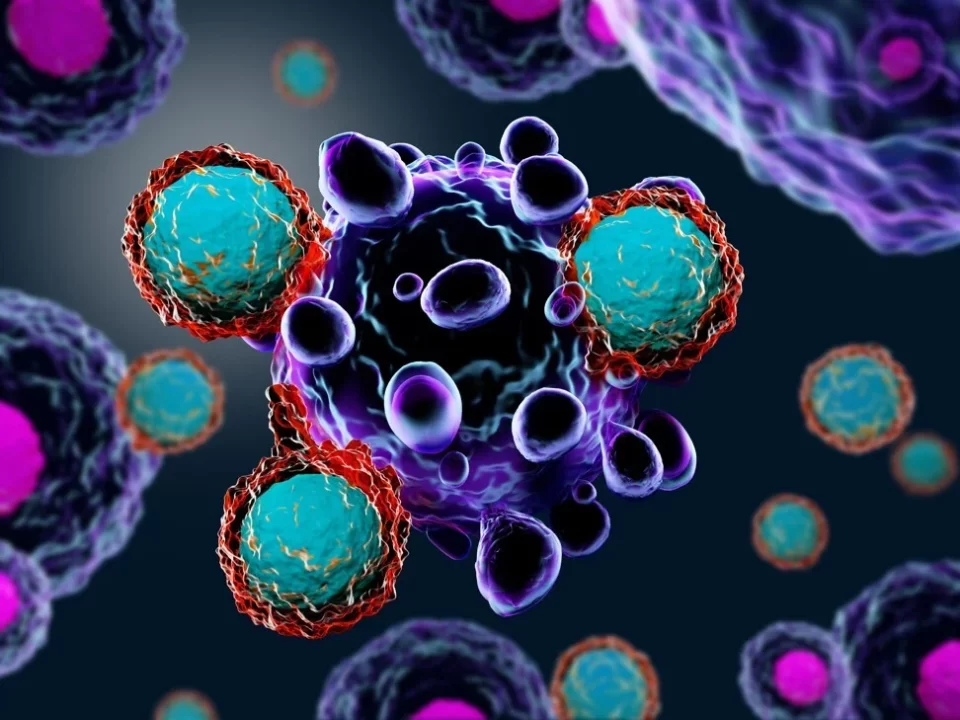By Frank Kamuntu
A “truly wonderful” new medication has been hailed by scientists for its ability to treat a difficult and aggressive form of cancer.
A team from Queen Mary University of London reported that their novel treatment “quadrupled” three-year survival rates and improved average survival by 1.6 months.
The new medicine for mesothelioma is the first in 20 years that will target the tumor’s food source, according to academics.
Mesothelioma is a form of cancer that develops in the lining that surrounds the surface of certain of the body’s organs, most notably the lungs.
It is generally associated with asbestos exposure.
According to Cancer Research UK, approximately 2,700 new instances of mesothelioma are diagnosed each year in the UK.
Every year, about 2,400 people die, with only 2% predicted to live for more than ten years after their diagnosis.
The latest trial, directed by Professor Peter Szlosarek of Queen Mary, involved all patients receiving chemotherapy every three weeks for up to six rounds.
For two years, half of the participants received injections of the new medicine ADI-PEG20 (pegargiminase), while the other half received a placebo, also known as a dummy drug.
The final analysis included 249 patients with pleural mesothelioma, which affects the lung lining. Their average age was 70.
Polaris Pharmaceuticals sponsored the ATOMIC-meso trial, which ran from 2017 to 2021 in 43 centers across five countries.
Patients enrolled in the trial were followed for at least a year.
Research published in the journal JAMA Oncology found that individuals who received pegargiminase plus chemotherapy lived an average of 9.3 months, compared to 7.7 months for those who received placebo and chemotherapy.
According to the researchers, the average “progression-free survival” with pegargiminase-chemotherapy was 6.2 months, compared to 5.6 months for patients who had placebo plus chemotherapy.
“In this pivotal, randomised, placebo-controlled, phase 3 trial in 249 patients with pleural mesothelioma, pegargiminase-chemotherapy increased significantly the median overall survival by 1.6 months and quadrupled the survival at 36 months compared to placebo-chemotherapy,” the researchers said in the paper.
“Pegargiminase-based chemotherapy was well tolerated, with no new safety signals.”
According to the researchers, this is the first successful combination of chemotherapy and a medication that targets cancer metabolism developed in 20 years.
It comes after two decades of research by Professor Szlosarek, who discovered that mesothelioma cells lack a protein called ASS1, which allows cells to produce the amino acid arginine.
Using this knowledge, the new medication was created. ADI-PEG20 acts by depleting arginine levels in the bloodstream. For tumour cells that are unable to generate arginine due to an enzyme deficiency, this inhibits their growth.
Professor Szlosarek stated, “It’s truly wonderful to see the research into the arginine starvation of cancer cells come to fruition.”
“This discovery is something I have been driving from its earliest stages in the lab, with a new treatment, ADI-PEG20, now improving patient lives affected by mesothelioma.”
Dr. Tayyaba Jiwani, science engagement manager at Cancer Research UK, which funded the early stages of the study, said: “This study demonstrates the power of discovery research, which allows us to delve deep into the biology of mesothelioma to uncover vulnerabilities that we can now target with ADI-PEG20.”
Liz Darlison, CEO of the charity Mesothelioma UK, said: “The UK mesothelioma community, including doctors, nurses, patients, and families living with mesothelioma, is extremely proud of ATOMiC.” It provides another much-needed treatment option and, most importantly, hope to individuals suffering from mesothelioma.
“We hope to see this treatment become offered as a regular choice for all patients in the future. Congratulations to all involved, and many thanks to everyone who participated.”
Have An Advert Or Article You Want Us To Publish? WhatsApp: +256760530830.

